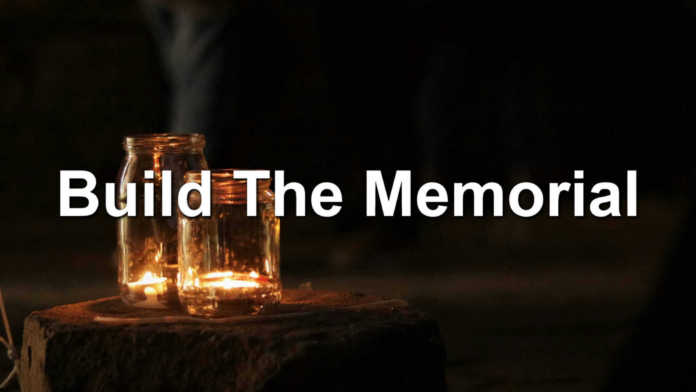The Bible makes multiple references to building memorials to remember the things God had done for His people. In Genesis 28:10-22, we see Jacob set up a pillar to remember the vision God had given him in Bethel.
Joshua 4:1-8 tells us how the Israelites built a memorial of 12 stones. Why? To remember their crossing of the Jordan River.
Numerous references in the Bible mention other times when people built memorials for the work God had done. These people realized the importance of remembering the past.
George Santayana once said that Those who cannot remember the past are condemned to repeat it. How do you remember the past? Do you even want to?
I’ve heard that leaders should not look back; they should only look to the future. I disagree. We have to be willing to look back.
To do so, we can build a memorial to remind us in the future.
Build The Memorial
The memorials built in Biblical times may look odd to us today. They were stone pillars left in specific areas where God had done mighty works in the lives of His people. People would pass by and remember what had happened.
How can we build memorials for our organizations in modern times? There are multiple ways, and some organizations have been doing this since their inception. Others see memorials as a way to avoid being forward-looking.
Here are 3 things you can do to build modern memorials so you won’t forget what’s been done:
Document the work:
The pillars left behind in the Bible were a way to document the work that had been done. Any time someone passed by the pillars, they would understand something had happened. There’s a pillar, so God must have moved.
In our organizations, we can document the work by creating plaques, yearly reminders, and other reminders that prompt us to remember where the company has excelled. We shouldn’t be afraid to honor and document past work.
Talk about what’s happened:
We can grow weary in discussing the past. By doing so, we feel like we’re living in the past. For some, it may be. For others, it’s a way to pass on what has occurred orally.
People love great stories. That’s what we’re doing when we talk about what’s happened. We’re sharing stories of victories (and sometimes defeats). The more we talk about it, the more people will understand how important our past is.
Use this as an opportunity to talk about the past and how the past impacts the future.
Create a memorial space:
The memorials in the Bible were physical. They stood out. They spoke volumes to the people.
What if you could create something similar in your organization’s buildings?
Think about this. Could you:
- Create a physical space to share what had happened
- Create an online page to share the good news
- Have a separate building to house the memorial
There are simple ways you can do this and more complicated ways such as the separate building. However, physical memorials can be critical in helping your people remember where they’ve come from.
Don’t be afraid to look back. It’s not something to be ashamed of. Looking back can remind us of the good times, point us to future possibilities, and help us dream once more.







